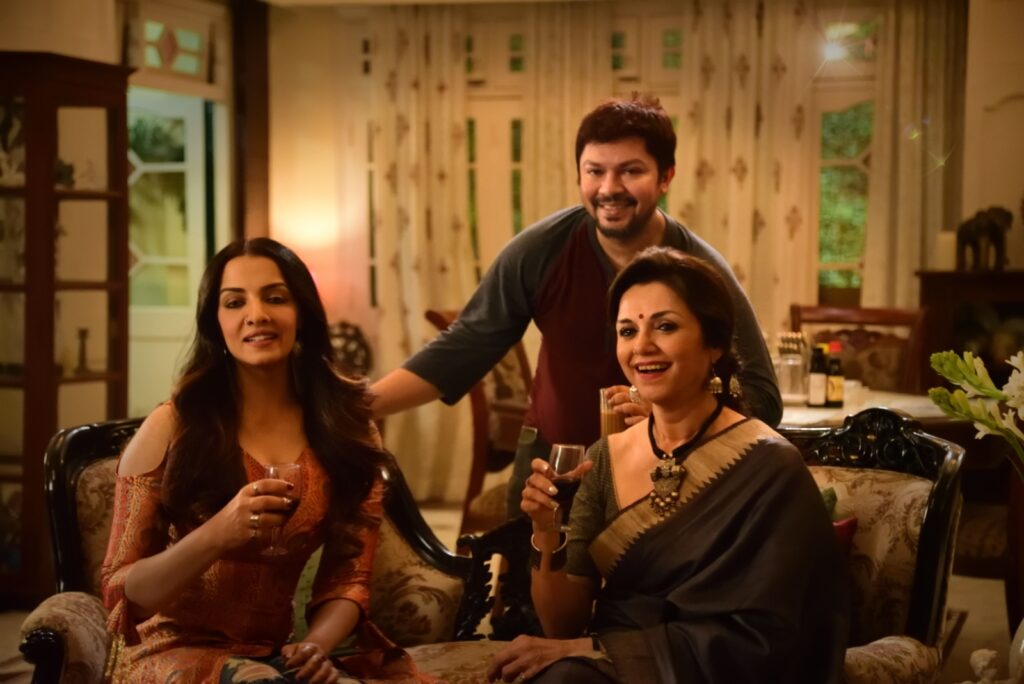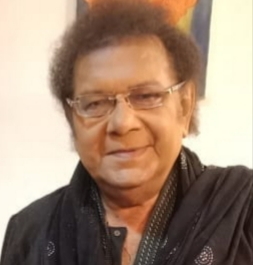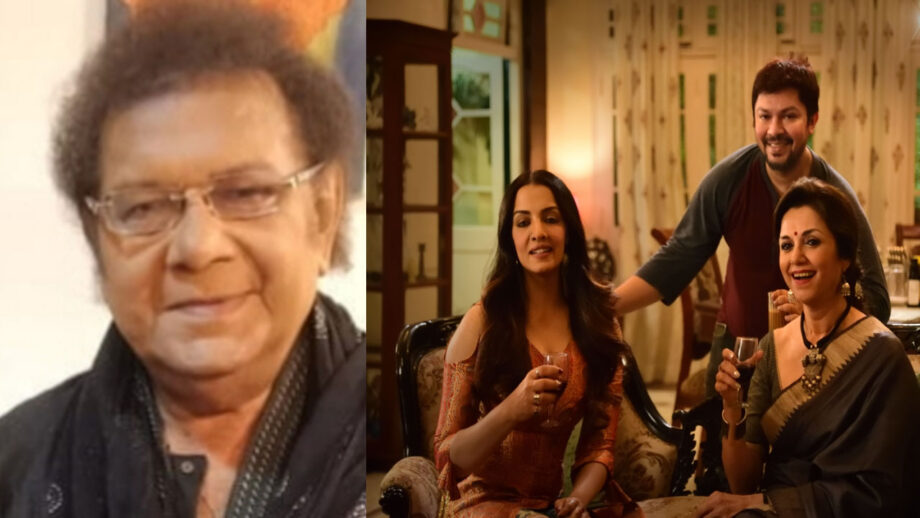Biplab Das Gupta – an actor, writer-director writes about Ram Kamal Mukherjee’s Seasons’ Greetings – a tribute to Rituparna Ghosh. In his intro, Biplab briefly narrates his experience of knowing Rituparna personally and professionally. He says ” My association with Rituparna goes back to 1985. Almost a decade before he became a filmmaker. He was like a family. We were doing Moliere’s Tartuffe. Ritu was our production designer. He was studying Economics at Jadavpur University. I had several interactions with him during rehearsals. His amazing analytical mind, command over language both Bengali and English, his attention to detail, his power of visualization made it evident that sooner or later he would be a creative artist to reckon with. He really had that spark. After he got his first National Award, I interviewed him for HMV FM which was a memorable experience. Later I did the voice-over for two of his docu features. I also acted in a TV serial called Irsha directed by him. During shooting I discovered what a powerful actor he was. He was sure of what he wanted, be it acting or art. His script reading sessions were mindblowing. I wish someone documented those sessions. It would have had archival values.
Today when I look back, I feel that Ritu’s cinematic journey was a search for an identity.
On 30th May 2013 the day he died I was all alone in the chilled room where he was lying still on his bed. He was not dead. He was sleeping peacefully. I wish he lived a little longer…
When emotions blend with images, we experience lyricism that
emit mystical insight. And that insight leaves the audience to a state where introspection gradually dawns in one’s mind. And that’s exactly what happened when I watched Ram Kamal Mukherjee’s Season’s Greetings – a tribute to Rituparno Ghosh. But it is not essential for the audience to know about Rituparno, to be able to experience the essence of the film. Season’s Greetings in itself is a self-sufficient movie that ably creates an impact and leaves the audience in a state of intrigue which challenges the rationality.
Since I knew Rituparno very closely I will have to, in all honesty, assess the movie keeping in mind that it is a tribute to him.
What fascinates me is that the Director Ram Kamal Mukherjee has deeply internalized the nuances of Rituparana’s cinematic sensibilities which are clearly reflected in every frame of Season’s Greetings.
Romita and Usmaan are in a live-in relationship for two years when the movie begins. They plan to get married. Romita is not ready to change her name after marriage. This reflects her desire to remain independent. And there the audience gets to know about Romita’s mother who lives alone since the time her husband disappeared. Romita was a child when it happened. Occasionally her father used to call her. But never ever dropped in to meet her. Romita grew up, moved on with her life. And in a conversation between Usmaan and Romita, Usmaan says, he thinks Romita’s father has also perhaps moved on with his life. Romita finds it difficult to accept it. That Romita is in love with a Muslim boy is a matter of intrigue to Chapala – a maid of Suchitra, Romita’s mother. A stereotypical curiosity very subtly touches upon the ingrained latent non-secular psyche we have deep down our minds.
Romita wants to introduce Usmaan to her mother Suchitra.
Suchitra invites them for dinner which completely changes the complexion of the movie.
Romita wants to move on but she is in her heart of hearts believes that her mother should have stuck to her father. Suchitra resents and says she was passionate about dance and music. It was not possible for her to sacrifice her passion for the sake of her marriage which in any case was not working out as there was no love in their marriage. But she did not divorce because of Romita who had deep love and adoration for her father whom Romita missed. During dinner, Romita and her mother have an undesirable tiff. Romita firmly believes there is someone in her mother’s life. And she is angry because her mother has kept it a secret and not divulged it even to her daughter.
Suchitra says that she has thought of introducing the new entity in her life to Romita and that’s why she has also invited that new person to dinner And when the moment arrives Romita is non-plussed.
Every frame of the movie is as lyrical as Rituparna was. And all the cinematic sensibilities are so wonderfully woven frame to frame, be it the shot taking style, art direction, camera movement, and realistic acting. Celina Jaitley as Romita brings out every shade of Romita like a classy painter. Azar Khan ‘s Usmaan is more than credible. During dinner, when mother-daughter arguments create discomfort for Usmaan, Azar Khan very quietly strikes a balance that is needed to bring back both Suchitra and Romita to a normal state.
Shree Ghatak practically did nothing as Chapala which reiterates the fact that less is more.
And Lillete Dubey’ Suchitra right from the first frame establishes her class as an actor. And needless to say, eventually the audience empathizes with her for two reasons. One, the way Ram Kamal has penned the character, and finally we can not make out if Suchitra was Lillete Dubey or Lillete Dubey was Suchitra.
Use of Rabindra Sangeet no doubt enhances the moods and moments of the movie.
The end of the movie is like a cĺassic short story of O Henri, Maupassant, Banophool, or maybe our own Rabindranath. Such an end takes the movie to a new height, not because of the surprise but because the audience is suddenly faced with a challenging situation. The challenge is thought-provoking. The movie asks a question like Pete Seeger’s song- “Which side are you on?”Watching the movie has been a delight as every moment of the movie reflects Rituparano’s emotions, his psyche, his beliefs, his struggle which needs to be carried forward. Ram Kamal Mukherjee has taken the first step and now it is our responsibility to take it forward. And that will be our Seasons’ Greetings to Rituparna Ghosh.




